#Herodot
Text

' Barışta, oğullar babalarını gömer, savaşta, babalar oğullarını '
10 notes
·
View notes
Quote
artık aramasın gözlerin güneşi. ne karadan ne de denizden bulabilirsin, hyperborea’ya giden yolu.
pindaros
#hyperborea#pindaros#ovidius#herodot#thomas moore#ütopya#distopya#blog#blogger#Jorge Luis Borges#kitap#kitap blog#kitap kurdu#şiir#william shakespeare#hades#homeros#odesseia#platon#sofist#gorgias#sokrates#aritoteles#Bertolt Brecht#Marcel Proust#umberto eco#sophokles#konstantin kavafis#yorgo seferis#yannis ritsos
8 notes
·
View notes
Photo

. My first mix of the new year is a one-and-a-half-hour special for @DubokaRecords Podcast based in Birmingham, United Kingdom. Thanks to Elliot for setting this up: https://soundcloud.com/dubokarecords/dbka091-discrete "Kyle Yip—also known as Discrete—is a JUNO Award-Nominated transdisciplinary hypersurrealist audio engineer, visual artist, and label owner of @SavvyRecords. He is internationally recognized for his highly accurate productions of electronic music, visual art, films, and haute couture fashion originally envisioned during his recurring dreams. While Kyle maintains an active presence in Toronto's nightlife, he is equally involved with an international community of producers and musicians. His accolades from distinguished artists such as @DJ-Sneak, @Merc_Music, @MousseT, Dave @Pezzner, and @TomTrago can attest to this, as well as his releases on major labels such as @DefectedRecords and @Get-Physical-Music. He also received an award nomination for 'Keepin' It Weird' from the Austin Music Video Festival and Best Cinematography from the Kinsale Shark Awards alongside artists such as Prince and The Chemical Brothers in 2019. In 2020, he received official selection at NewFilmmakers Los Angeles, Toronto Lift-Off Film Festival, and Blowup Chicago International Arthouse Film Festival." #BusinessTechno #DeepTech #DeepTechno #Discrete #DubøkaRecords #DubTechno #Electronica #Herodot #HouseMusic #Hypersurrealism #JunoNominee #KYLEYIP #MicroHouse #MicroTechno #MinimalHouse #MinimalTechno #Mioritmic #PetreInspirescu #Priku #Raresh #Rhadoo #RicardoVillalobos #RomanianTechno #Rominimal #SavvyRecords #SunwavesFestival #TeamDiscrete #TechHouse #Techno #UndergroundTechno (at Birmingham, United Kingdom) https://www.instagram.com/p/CoFGi-IAfs1/?igshid=NGJjMDIxMWI=
#businesstechno#deeptech#deeptechno#discrete#dubøkarecords#dubtechno#electronica#herodot#housemusic#hypersurrealism#junonominee#kyleyip#microhouse#microtechno#minimalhouse#minimaltechno#mioritmic#petreinspirescu#priku#raresh#rhadoo#ricardovillalobos#romaniantechno#rominimal#savvyrecords#sunwavesfestival#teamdiscrete#techhouse#techno#undergroundtechno
4 notes
·
View notes
Text
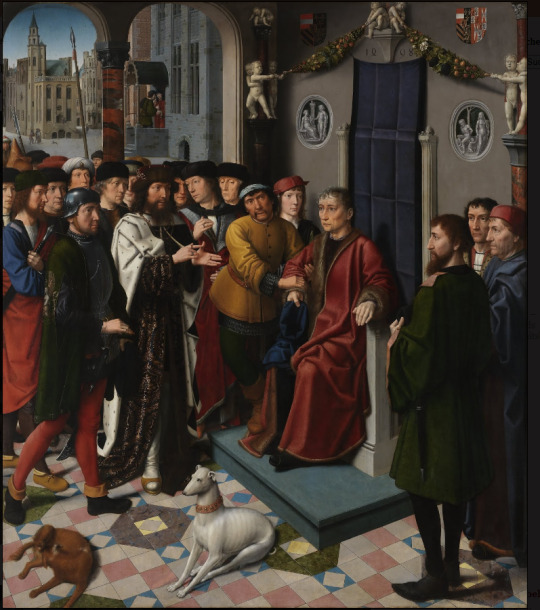
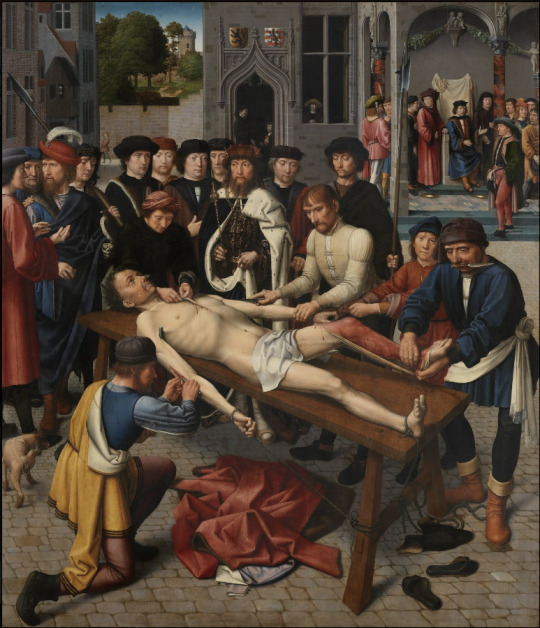
Auf Tafeln
1.
Gerard David malt die beiden Tafeln 1498. Das erste Bild zeigt, wie Kambyses dem Richter Sisamnes vorhält, bestechlich zu sein und ihn zum Tode verurteilt. Das zweite Bild zeigt, wie Sisamnes auf einem Tisch/Gestell die Haut abgezogen wird. Im Hintergrund (das Bild ist mindestens zweischichtig) sitzt nun sein Sohn Otanes auf dem Richtstuhl. Dieser Stuhl ist bespannt, es heißt, das sei die Haut seines Vaters.
2.
Ursprünglich hatte David wohl den Auftrag für den Schöffensaal in Brügge das jüngste Gericht zu malen. Dann wurde der Auftrag angeblich abgeändert, David sollte nun eine Erzählung Herodots ( wiedererzählt in der gesta romanorum und einer dritten Quellen, deren Titel ich vergessen habe) malen. So ein Rückgriff auf antike, nicht-christliche und nicht römische Quellen, kommt selten vor.
Sisamnes war ein Richter des Königs Kambyses, er wurde bestochen und fällte ein ungerechtes Urteil. Die erste Bildtafel ist ebenfalls zweischichtig angelegt: im Hintergrund sieht man, die der Richter auf einer Treppe (Treppenszene!) das Geld in Empfang nimmt. Im Vordergrund sieht man seine Verurteilung.
3.
Hans Miegroet hat die Entstehung des Dyptichons mit einer Phase der Geschichte Brügges in Verbindung gebracht, zu der auch Aby Warburg einen kleinen Text geschrieben hat (das ist Warburgs kurzer Text über zwei Skizzen des sog. Hausbuchmeisters).
#gerard david#Treppenszene#Das Urteil des Kambyses#Die Schindung des Sisamnes#Herodot#Hausbuchmeister#Maximilian II.
2 notes
·
View notes
Text
Tarihin Babası Herodot
“Burada Halikarnaslı Herodot’un yaptığı araştırmanın sonuçları sunulmaktadır. Amaç, insani olayların izlerinin zamanla silinmesini engellemek ve hem Yunanlar hem de Yunan olmayanlar tarafından üretilen önemli ve dikkat çekici başarıların ününü korumak; ele alınan konular arasında özellikle Yunanlar ve Yunan olmayanlar arasındaki düşmanlıkların nedeni yer almaktadır.
Herodot
Herodot, antik Yunan…

View On WordPress
0 notes
Text
Plinius-river-pacyris-Turkic-bakir-copper
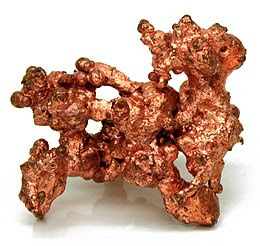
Bakir-copper-kupfer
Plinius told about a river Pacyris.
Herodotus called it Hypacyris.
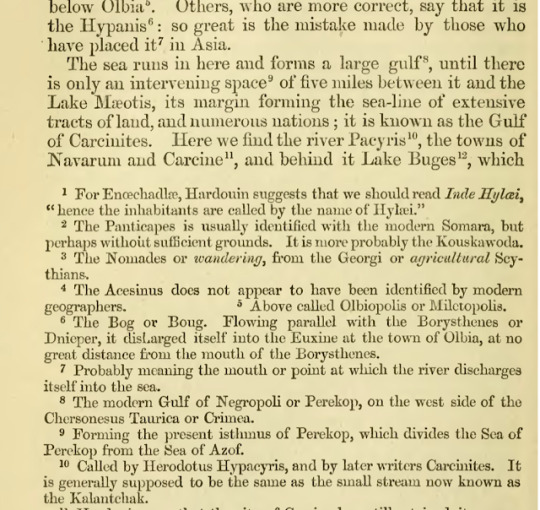
Plinius Pacyris
*
Both match with Turkic BAKIR, meaning copper.
Had this river the color of copper? Is it a Turkic name?
By the way the etymology of the Indo-European words for copper is very unclear and could be a metathesis of this Turkic word-> COPPER(Kupfer)~BAKIR
*
TURKISH:
Plinius Pacyris nehrinden bahseden.
Herodot buna Hypacyris adını verir.
Her ikisi de Türkçe BAKIR ile kolayca eşleşir.
Bu nehir bakır renginde miydi? Adı da Türkçe miydi?
*
Bu arada bakır için kullanılan Hint-Avrupa kelimelerinin etimolojisi çok belirsizdir ve bu Türkçe kelimenin bir metatezi olabilir-> COPPER (KUPFER) ~BAKIR
*
Uzunbacak Adem
#prototurk#Öntürk#Pliny#pliny the elder#Plinius#Hypacris#Copper#Cupfer#Etymology#Kelimeköken#Bakir#Herodotus#Herodot#Pacyris#RiverPacyris
0 notes
Text
Bir tek şey bilirim ki , eğer insanlar işledikleri kusurları birbirleriyle değiş tokuş etmek için ortaya yaysalar , başkalarınınkilerin ne kadar aşağılık olduğunu görüp , yine kendi kusurlarını ; hem de sevine sevine alır giderlerdi.
0 notes
Note
Listen, about the thing in the books, isn't f&b basically a retelling of something someone who isn't even a first-hand witness has said? It would make sense that the reality was a bit different, no?
And like, it's often the case that the retelling is more romanticized, wouldn't it be interesting and refreshing if in this case the reality was actually more romantic and idealistic?
exactly!! also again licherally everyone who wrote those histories fucking hated daemon!!!
23 notes
·
View notes
Text
I wonder how many people have started reading the bible because of good omens
#this is not me admitting that i thought about it 👀#im joking but honestly analysing the bible more in the lines of a sorta historic aource sounds kind of interesting#you know like you can read herodot when he is talking about cyclops and stuff#idk i should go to bed#.txt
2 notes
·
View notes
Text
I know I already talked about this a few years ago but can we again talk about the dumbass map and what it implies about Waidwen's war plans?
I mean what is going on here???
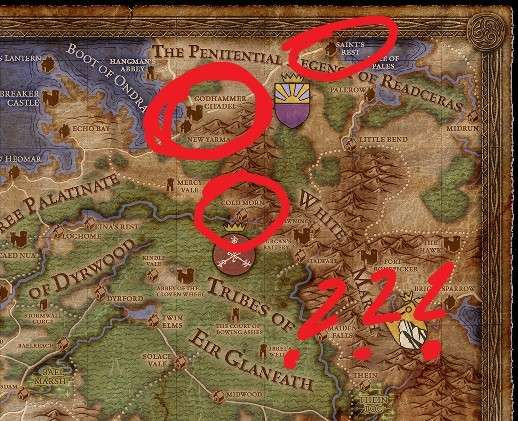
So there's no way in hell that Saint's Rest isn't named for him, so he came through here, on his way to the border. Alright, so far so good. Then he decides to march south to cross a whole ass mountain range instead of just taking the normal road, which is weird, but alright, maybe that pass there at Ondra's boot was well protected and he decided it would take less fighting to get through Cold Morn, which he was right about, so I am willing to accept that. Then he got to Mercy Vale, which is also fine, that is how the road goes. A bit strange considering that his end goal was Twin Elms but whatever, fine, maybe he wanted to take over Fleetbreaker Castle to break resistence. And then... he marched back up north?? To Readceras??? Why the hell is the Godhammer Citadel so far north?? The fuck was he doing there?? Even considering Eothas already knew about the bomb and had for some reason decided this was a good idea (Eothas is unfortunately not known for his great planning or scheming skills), the Readceran army had no reason at all to go there. None. Zilch. Why did the Dyrwood think they could make him? "The fields, maybe they reminded him of his past as a farmer" look Durance, I know you're stupid but even you should be able to tell there's something up there. Also what fields, there's a giant saltwater bay right next to it, what were's you farming there, glasswort?? And while we're at it, what the fuck is Evon Dewr Bridge actually bridging?? It's clearly not the bay, it's much to tiny for that, there's no river anywhere, so why the hell is there a fancy ass bridge???
So, in order to deal with these descrepancies, I propose two things:
#1: This map is in fact diagetic, and was constructed by the in-universe equivalent of Herodot, some guy (likely Aedyran lets be real) who's writing entertainment textbooks for a living and has actually been in the Eastern Reach. He's just kinda heard things and then started drawing in landmarks where he thought they'd look nice. He also has not heard about the Bridge Part of the Godhammer, just the Citadel, explaining why it's just marked as Godhammer Citadel, and he decided to put at the admittdely most logical point of entry into the Dyrwood from Readceras, assuming that's what that was about.
#2: The actual Godhammer Bridge is somewhere southwest of Mercy Vale, crossing the river there, meaning there is a point for a bridge and a reason for Waidwen to want to cross it. Considering timeline issues we'll just assume the river placement is also off, as well as the exact locations of Cold Morn and Mercy Vale.
Thank you for coming to my increasingly unhinged ted talk about a game I love but whose maps I hate (and love).
#pillars of eternity#i'll be honest here#i love complaining about this dumb map and the dumb bridge#i've gotten so much joy out of ragging on it#i love these games to bits for lots of actually good reasons#but look sometimes i just want to complain about things that don't actually matter in a comedic fashion#feel free to join me if you have things to add#anyway i wanted to write this up after exploding about it on discord again#i love this pasttime too much to just leave it there#edit: that was supposed to say hasn't been to the eastern reach#typing is hard
34 notes
·
View notes
Text
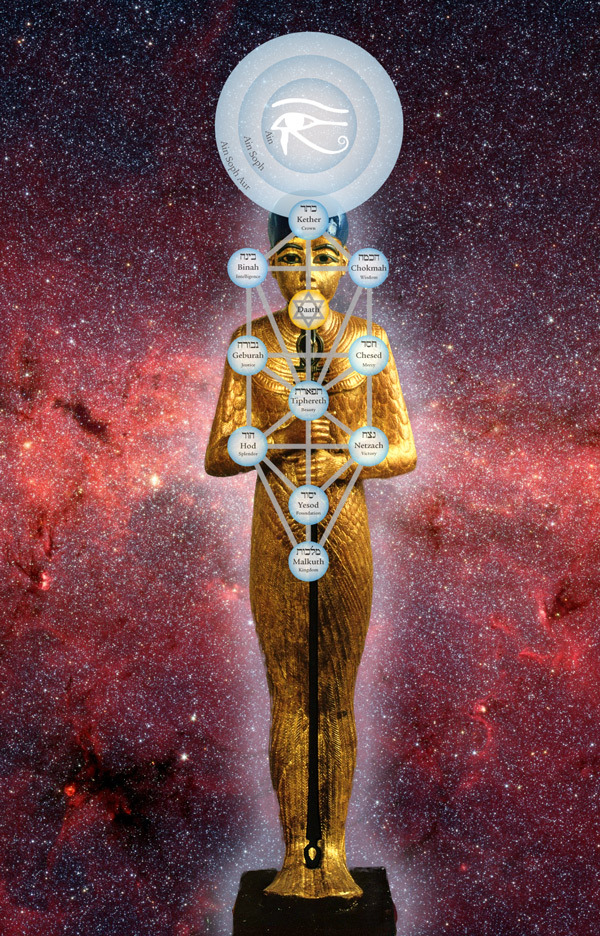
Ptah Tree of Life
“Ptah the son of Kneph in the Egyptian Pantheon is the principle of Light and Life through which the creation or rather evolution took place; the Egyptian Logos and creator, the Demiurgos. A very old deity, as, according to Herodotus he had a temple erected to him by Menes, the first king of Egypt. He is giver of life and the self born and the father of Apis, the sacred bull, conceived through a ray from the Sun. Ptah is thus the prototype of Osiris, a later Deity.
“Herodote said that he is the father of Kabiri, the mystery-gods and the Targum of Jerusalem tells: the Egyptians called the Wisdom of the First Intelligence the name of Ptah.” - H. P. Blavatsky
“Ptah is Maat, the divine wisdom, though from another aspect he is Svabhavat, the self created substance. As a prayer addressed to him in the ritual of the dead says: After calling Ptah “father of all fatherhood and of all gods, generator of all the human beings produced by his substance. “Thou art without father, being, engendered by thy own will; thou art without mother, being born by the renewal of thine own substance from whom proceeds substance.” - H. P. Blavatsky
46 notes
·
View notes
Text
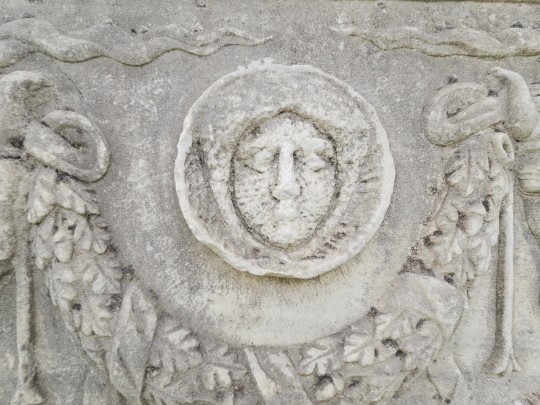
Travel Düzce 03 / Düzce Konuralp Müzesi:
Konuralp ( Prusias Pros Hypios ) antik kentinin de içinde bulunduğu bölge Herodot, Xenophon ve Strabon gibi antik çağ yazarlarına göre MÖ. 1200 - 700 yılları arasında Trakyalı halkların yurdu olarak anılır. MÖ. 1000 yılının ilk yarısında Hypios dağının güney yamacında Hypios çayı ( Melen çayı ) yakınlarında bir tepe üzerinde kurulan kent, çaydan dolayı Hypia, sonraki dönemlerde Kieros olarak anıldığı bilinmektedir. Antik Çağ yazarlarından Memnon Prusias ( MÖ. 237-192) Kieros kentini zapt ederek Herakleialılar' dan alır ve kentin adını Prusias olarak değiştirir. Aynı adı taşıyan diğer şehirlerden ayırt etmek için Prusias Pros Hypios ( Hypios önündeki Prusias ) denilmiştir.
MÖ. 326 yılında babası Bas' ın yerine geçen 1. Zipoites 297 yılında kral ünvanını alan ilk Bithynia kralıdır. Kuzey sınırı Karadeniz, doğu sınırını Filyos çayı , batı sınırını Orhaneli çayı ve güney sınırını antik Phrygia Epictetus' un oluşturduğu Bithynia krallığı son kral IV. Nikomedes' in vasiyeti üzerine MÖ. 74 yılında Roma İmparatorluğuna bağlanır. Yeni dönemde Roma kültürünün etkisinde kalarak Prusias ad Hypium adını alan kentte yoğun imar faaliyetlerine girişilerek kent merkezinde sosyal yapılar oluşturulmuş ve sanat eserleriyle süslenmiştir.
Antik kente ait eserlerin korunmasını sağlamak ve sergilemek amacıyla 1977 yılında inşaatına başlanan bina 1922 yılında tamamlanır ve 1994 yılında eserler sergilenmeye başlar. 1931 yılında Düzce konuralp beldesinde bulunup İstanbul Arkeoloji Müzesi' ne götürülen ve orada teşhir edilen Tykhe heykeli en kıymetli eserlerdendir.
16 notes
·
View notes
Text
Currently thinking about how KM decided that 'Sappho' was the most fitting nickname for Old Shatterhand to have. Not Vergil, not Ovid and not even Herodot, no chance.
It has to be Sappho of Lesbos, the lady lesbians are named after.
He knew that, right? Is there a straight explanation? Does this tell us anything about the author's gender experience? Am I going crazy?
Send help.
22 notes
·
View notes
Text
“In truth, Claudel was reacting against French intellectualism: against the cogito, ergo, sum, the “I think, therefore I am” of Rene Descartes. And thus he returned to the ideas of the Greeks, founders of Albo-European civilization. So much so that they borrowed a lot from the Egyptians, whom Herodote, the father of History, in his Histories described as having “black skins and crinkled hair.” Thus, in his Ethics to Nicomaque, Aristotle, the disciple of Plato, but the true founder of Greek philosophy, explains to us that there are three faculties that permit us to know and transform nature. They are sensibility (aisthesis), reason (nous) and desire (orexis). But here we have the French philosopher, Rene Descartes, taking the Greek formula, reversing the order of the words, and giving us the formula of “thinking, wanting, and desire.” In truth, he did more by hardening the words nous (reason) and orexis (desire), and making them “thinking” and “wanting.” The most grave result is that Descartes led philosophy, and consequently culture, even French poetry, toward what was going to be in the 19th century “positivism,” or “realism” of “the stupid 19th century,” to use the words of Leon Daudet.”
Léopold Sédar Senghor - Négritude and the Civilization of the Universal (1995)
2 notes
·
View notes
Text
“Why is Herodotus so Important?
Answer by Jan Haywood
This is a big question, which probably deserves its own lecture course! I will include here what, I think, are just a few particularly salient points. First of all, Herodotus’ Histories are a key narrative source for a major set of conflicts between the Achaemenid Empire and various Greek poleis (city-states), known as the Greco-Persian Wars (490-479 BCE); these conflicts proved to be a significant series of events, shaping relations between Persia and Greece long afterwards! Of course, Herodotus was far from the only author in antiquity to write about the Greco-Persian Wars. Others who did so include Diodorus, the Sicilian historian of the first century BCE (who seems to have been influenced by Herodotus’ work), as well as Plutarch, the biographer and historian from the first-second centuries CE, who famously criticised Herodotus’ account of the Greco-Persian Wars in his de malignitate Herodoti (On the Malice of Herodotus).
But Herodotus’ work is an incredibly rich one, and its importance extends far beyond what it can tell readers about the military conflict between Greece and Persia. Herodotus displays a keen interest in the customs, geography and culture of various peoples, not least the Egyptians, to whom he devotes an entire book (i.e. Book 2). (The Histories are conventionally divided into 9 books, though Herodotus is not responsible for these divisions.) His work is also rich in information concerning the religious history of the ancient Greek world, and it tells readers a great deal about non-Greek religions too. (Various recent publications have further enriched our understanding of this topic, for example, Andreas Schwab, Fremde Religion in Herodots Historien, Stuttgart 2020).
I don’t have the space to go into much detail here, but many readers have also derived great joy from numerous of Herodotus’ celebrated stories concerning particular individuals. For example, his account in Book 1 on the rise and fall of the Lydian king Croesus, as well as his account in Book 3 on Polycrates, the tyrant of Samos from the 540s – 522 BCE.
Finally, I will add that Herodotus has been hugely influential since antiquity in several ways. Not only does he stand as a key figure in the development of history-writing, but he also stands at the forefront of other fields of study, such as geography, ethnography, travel-writing, etc. The academic study of Herodotus’ impact in later periods and the reception of his work is now a burgeoning field, which continues to improve and refine our understanding of why Herodotus has been so important since classical antiquity. If you are interested in finding out more about this aspect of Herodotean research, a good place to start is Jessica Priestley and Vasiliki Zali’s excellent collection, Brill’s Companion to the Reception of Herodotus in Antiquity and Beyond, Leiden and Boston 2016.”
Source: the site of Herodotus Helpline (https://herodotushelpline.org/why-is-herodotus-so-important/)
I would add that Herodotus is also very important because he had an understanding of the distinction between mythical and non-mythical past and chose to write an account of the latter, he proposed a methodology about historical research, and he tried to find the causes of the historical events, but also patterns in history. And of course The Histories is the first masterpiece in prose in every European language.
7 notes
·
View notes
